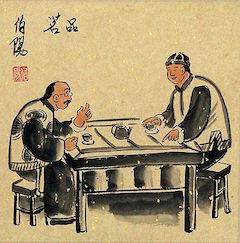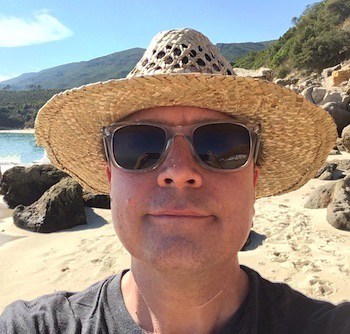
What we tell ourselves might be more powerful than our actual experiences. Not only that, our thoughts shape our bodies. Practitioners of East Asian medicine have hard-won, clinically derived tools for conceptualizing how biography affects physiology.
Importantly, this is not limited to counseling our patients. Instead, through palpation and other components of East Asian medical physical exam, patients can physically experience how emotional patterns affect structure and function.
Effective treatments can then help shift that monologue running between the ears to change the state of our sympathetic tone, organ function and blood chemistry in order to ultimately shape the way our sensorium interacts with the world.
Although this concept of conceiving of treatment arcs as an unfolding of ‘story’ is still a work in progress for me, I might have a few ideas for those interested to consider. One crucial thing that I have learned is that the ‘story’ shown in the patterns of illness and palpated change does not reveal itself right away; remember that you are also reading the book along with them. Secondly, it seems important to me to have an attitude of interest instead of the more-tempting attitude of power over the person because you know more about them than they do. This is the kind of thing others might call “an excess of irony”

Jason Robertson, L.Ac
Dr. Wang Ju-Yi was ever curious about why some treatments worked and others did not. He deeply studied the classical literature along with his own clinical experience, and somewhere along the way started putting his hands on patients to simply see what the channels had to say. For those practitioners who find palpation to be a key part of their practice, the work of Dr. Wang opens a whole new way of interacting with patients. And for those who are interested in how to puzzle through confounding clinical cases, Dr. Wang has some ways of clarifying complex situations. Pull up a cup of tea and listen in to this conversation that gives you a personal view of Dr. Wang and his work through the eyes of his apprentice Jason Robertson, co-author of Applied Channel Theory in Chinese Medicine, Wang Ju-Yi’s Lectures on Channel Therapeutics.